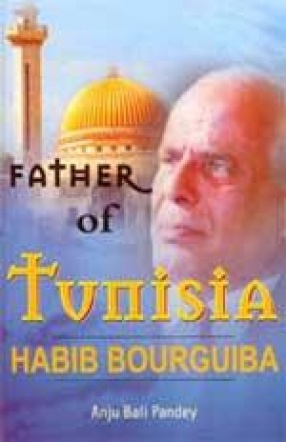The book analyzes the role and relationship among three main factors responsible for the overall will and aspirations of the nation. These are so inter related and inter linked that if any one of them is disturbed a remarkable change in the other two is inevitable. The present work is pioneering in nature as it examines the role of Babib Bourguiba the first President of independent Tunishia, who was in power from 1957 to 1987. Prior to 1956, Tunisia was ‘a’ French protectorate but with the emergence of Bourguiba vital changes took place in the political environment and institutional setup. After coming to power Bourguiba abolished old institutions to suit his personality. His major sources of absolute power were mainly the constitution, Presidential form of government and the single party system. In the beginning he was democratic in his outlook but with the passage of time, he became intolerant of criticism and started showing signs of a dictator. Gradually he lost his power base and credibility. As a result Zine Al abedin Ben Ali ousted him from his office by a bloodless coup on Nov. 7, 1987. Bourguiba’s successor Ben Ali changed the single party system to a multi-party system. The country has a constitutional democracy and the President Ben Ali has all the powers because he appoints the council of Ministers led by a Prime Minister-President Ben Ali was reelected for a fourth term in 2004. Bourguiba expired in April2000. the present Prime Minister, Foreign Minister and Finance Minister of Tunisia are Mohammed Ghannouchi, Abdel Baki Hermassi and Mohammed Rachid Kechiche respectively.
Father of Tunisia: Habib Bourguiba
In stock
Free & Quick Delivery Worldwide
reviews
Bibliographic information
Title
Father of Tunisia: Habib Bourguiba
Author
Edition
1st ed.
Publisher
ISBN
8189526375
Length
xii+88p., References; Bibliography; Index; 23cm.
Subjects






There are no reviews yet.